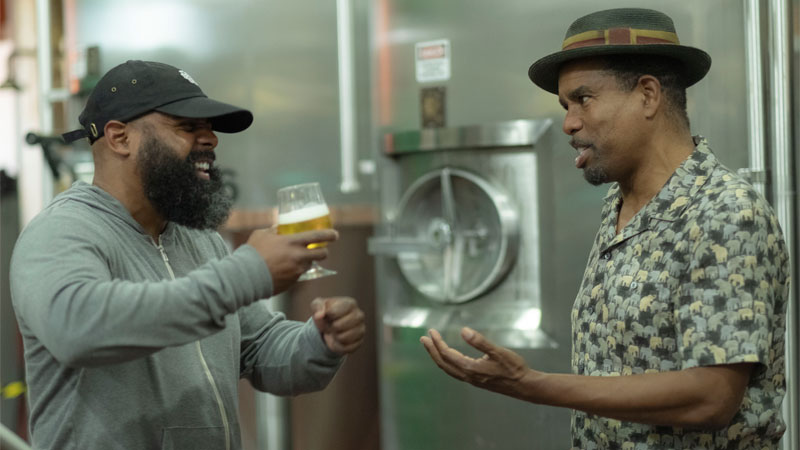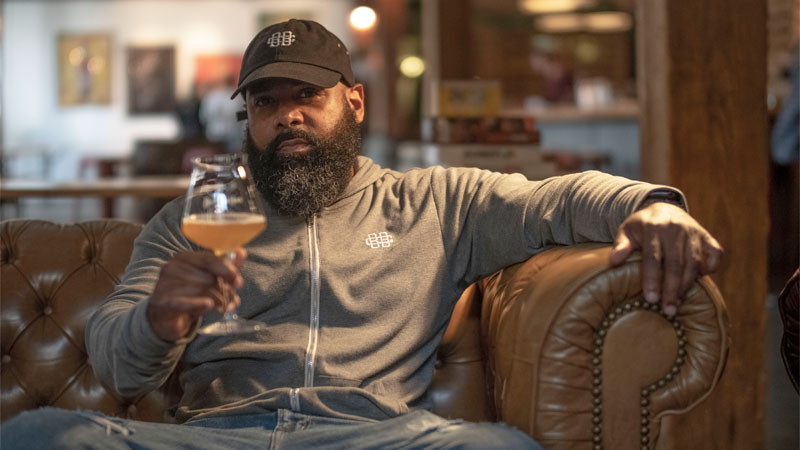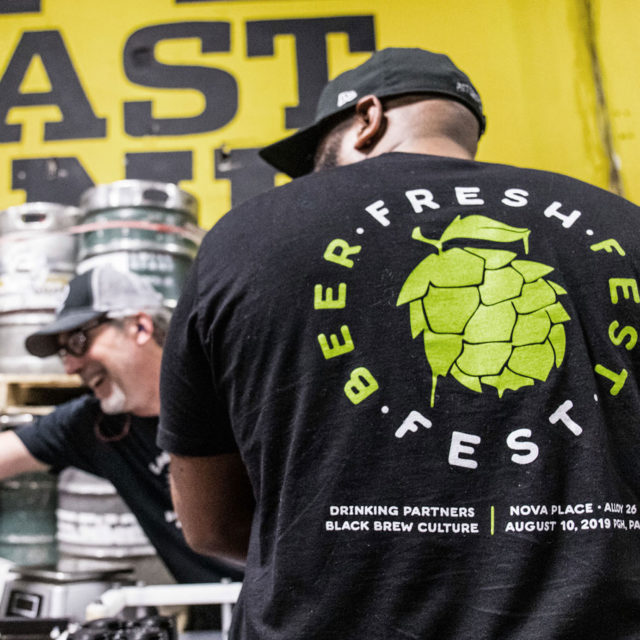“If you are passionate about something, recognize early that it’s a 24/7 calling,” Mike Potter says. “You have to gravitate towards the positive energy and distance yourself from the negative — especially in times of turbulence.”
Potter is the co-founder of Fresh Fest Beer Fest, the country’s first black craft beer festival, which he launched in Pittsburgh in 2018. On Aug. 10, 2019, craft beer enthusiasts, brewers, and supporters from far and wide will return for its second installment, an all-day event featuring 25 black-owned breweries and 45 exclusive beer collaborations. There will also be live performances, food trucks and vendors, and, for VIP ticket holders, a Drinking Partners podcast recording featuring Brooklyn Brewery’s Garrett Oliver.
For many in the black beer community, Fresh Fest is an annual meeting of the minds, resembling a family reunion or HBCU (Historically Black Colleges and Universities) homecoming.
Don't Miss A Drop
Get the latest in beer, wine, and cocktail culture sent straight to your inbox.“Last year was an incredible experience and it really showed us that the community can rally behind and support a black beer festival and recognize that these kind of cultural experiences can only be good for the industry,” Potter said. “Following the stories of the collaborations and providing opportunities to build relationships is what we set out to achieve and it’s so great to see it unfolding.”

A Pittsburgh native, Potter was first introduced to craft beer after an impromptu visit to East End Brewing’s tasting room in 2006. A 14-year friendship and mentorship blossomed from that chance meeting, plus two beer collaborations (one of which is called For The Culture 2.0, and will be featured at this year’s Fresh Fest).
Potter also created a digital magazine, Black Brew Culture, to bring exposure to cool things happening in the black and brown craft beer community that don’t always get attention in the industry. It also aims to build enthusiasm for craft beer among novice drinkers.
“I recognized that this platform was needed when I didn’t readily see cultural diversity in any form in the industry. Not in taprooms, not in brewery ownership, and not in marketing and advertising,” Potter says.
It’s no secret that many parts of the beer industry have a diversity problem. In the last year alone, white brewery owners have redacted culturally insensitive social media posts, or been sued by former employees of color.
Major beverage brands are still grappling with the idea that people of color represent a valuable consumer market for quality wine, craft beer, and cocktails. According to a 2018 Nielsen report, “Black Dollars Matter: The Sales Impact of Black Consumers,” African Americans have an annual spending power of $1.2 trillion, which should make all brands across all industries pay attention.
For Alisa Bowens-Mercado, the first black woman in Connecticut to own and operate a brewery, stepping into the craft beer scene in New England has had its challenges, but she realizes that taking the leap is something much bigger than herself. “When you’re doing something right, you’re undoubtedly going to get pushback,” she says, sharing a few instances in Rhythm Brewing Company‘s infancy when she dealt with flaky vendors who didn’t deliver on their promises or correct orders.
“It’s my personal mission to make great product, raise awareness, to help diversify beer culture as much as I can,” she says on a telephone call. If she has to be the one to “break down the door,” she says, “then I’ll take the bumps and bruises along the way.”

In Virginia, craft beer enthusiast Eric Jackson created Uncap Everything as a way to document his experiences in the community. The craft beer scene in Richmond is growing exponentially, he says, but he worries about how speedy changes can alter the organic makeup of a city.
“There’s no love, no energy, or no sense of family there,” Jackson says of the city. “The only way for the brewery scene to ‘be better’ for black and brown drinkers is collaborate with those within that community. Unfortunately, I think some breweries either don’t understand or don’t care to think that way.”
New York City-based food and beverage enthusiast Casandra Rosario is closely following the beer industry as it continues to evolve. With her online community Food Before Love, she helps other food lovers discover the best dining experiences in New York and other places the world has to offer through shared meals, live events, and original content. She believes that the beer industry ultimately has no choice but to recognize black beer lovers’ tastes and how they are making meaningful contributions to the community.
“What’s so special about this moment in time is that people are coming together to change the narrative and not just talking about it,” Rosario says. “And when you look at the leaders currently in the black beer world, it’s people that honestly care about the story that’s not being told and who are committed to making sure everyone hears it.”
As the craft beer industry and community evolve, Fresh Fest provides a place for black members to gather, collaborate, and celebrate passions and progress. For Potter, it’s a dream realized. He continues to pour himself into it, and encourages others to do the same.
